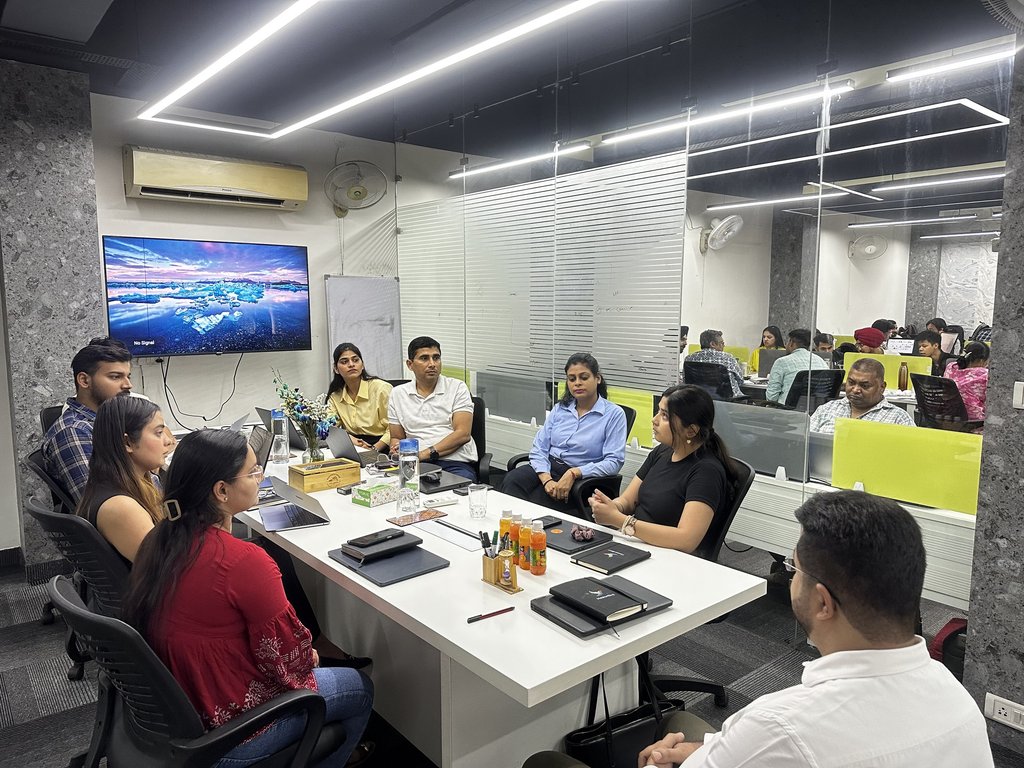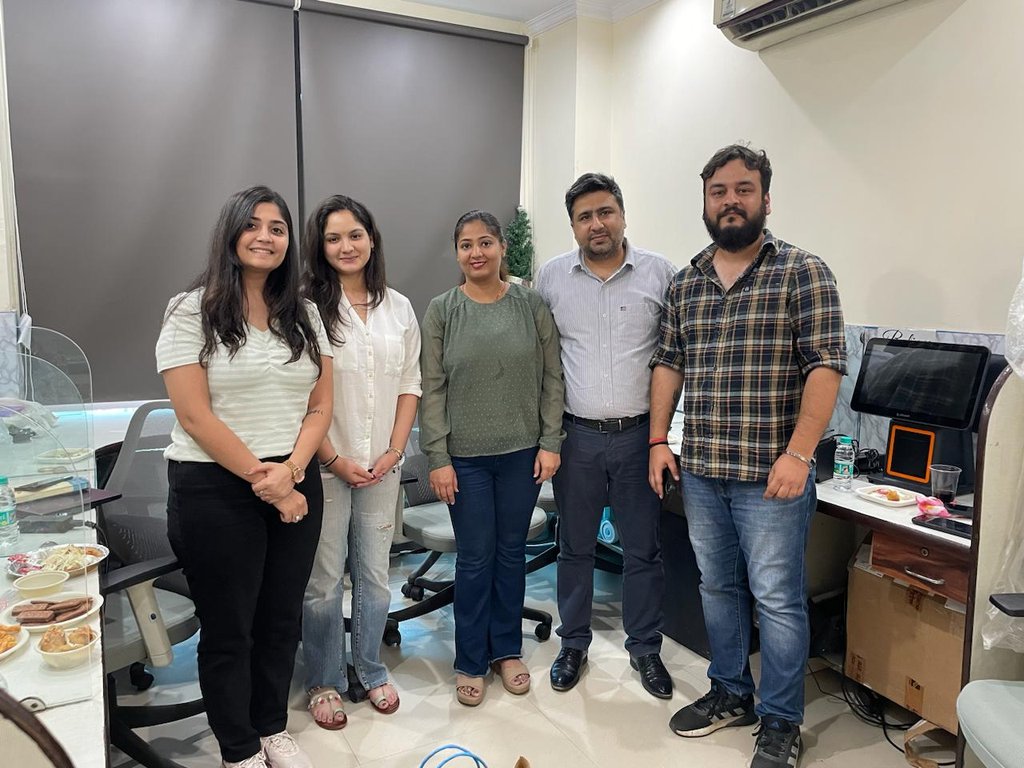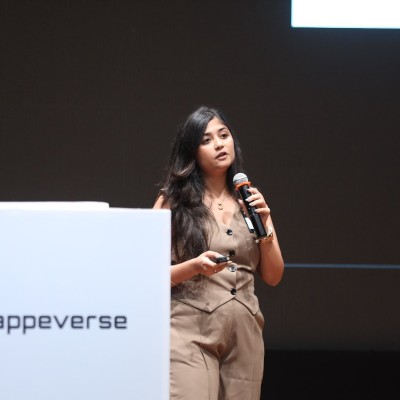 Meetup with the Nestorbird team
Meetup with the Nestorbird team
Over the past few weeks, I’ve been meeting current and prospective Frappe Partners across the NCR region. Some are new to our ecosystem, others have been around a while. But whether it’s a 4-member team or a 40+ person tech firm, one thing is consistent: everyone’s trying to figure out how to take ERPNext to market in a way that’s sustainable and scalable.
For me, this trip was an eye-opener for all the good reasons. We have a strong tech team in our ecosystem. They, in turn, have a strong network which can help us achieve growth in the India-North region.
As Frappe Technologies, we operate very differently from traditional OEMs. We don’t offer implementation services ourselves. Instead, we’ve built a Partner-led model that allows others to take our open-source products, offer services around them, and build their businesses. It’s not perfect, and it’s definitely not plug-and-play. But it’s deliberate, and over time, we’ve seen this model enable real entrepreneurial journeys.
What We’re Seeing on the Ground
There’s real tech talent in the ecosystem. Most of the partner teams we spoke to are full-stack devs, or have solid ERPNext knowledge, and in some cases, even built internal tools or entire products using the framework. But where we still see gaps is in sales, positioning, and go-to-market clarity.
Some teams believe that being good at implementation is enough. Others are still figuring out where to start, which industries to target, how to price, or how to even talk about what they offer. And that’s where a lot of our focus is now shifting.
I believe that if we want this ecosystem to grow meaningfully, we need to spend more time on the ground — meeting teams, listening without assumptions, and understanding where they are in their journey. The real picture only emerges when you sit across the table and talk openly; that’s where you see the strengths, the confusion, and the gaps that aren’t always visible on calls or emails.
 Sales cadence discussions with the Nestorbird team
Sales cadence discussions with the Nestorbird team
What We’re Trying to Solve Together
- Helping partners build presence: A great case study or implementation means nothing if no one knows about it. Many teams are just starting to realise they need the basics: a pitch deck, a few LinkedIn posts, and a clean portfolio site.
- Shifting from project-based thinking to business-building: We’re pushing teams to think long-term. That means identifying focus areas, building repeatable offerings, and defining pricing in a way that makes conversations easier.
- Driving certifications with purpose: More than a badge, our certification is a way for us to ensure quality. And the process of getting certified (especially on the technical side) gives teams the confidence to pitch, troubleshoot, and scale.
- Strengthening Frappe Cloud adoption: Some hesitation still exists, mostly around uptime and performance. But with more partners moving clients to FC and sharing success stories, we’re seeing that perception shift.
What We’re Working On Next
One of the biggest takeaways from these visits is the urgent need for a Sales Bootcamp. Not everyone comes from a business or consulting background, and that’s okay. But if you’re running a Partner business, you can’t wait around for leads to fall into your lap. We're working on a simple, actionable format that covers how to pitch, price, follow up, and close deals. Without sounding like a pushy salesperson.
We’re also doubling down on content like Partner decks, sample proposals, and even snippets you can use on your website or demo calls. These are small things, but they make a big difference in helping someone go from “interested” to “ready.”
The Road Ahead
We’re not building a vendor network. We’re building an ecosystem. That means working closely with people who believe in open-source, in long-term thinking, and in creating value over time. It’s messy, sometimes slow, but incredibly rewarding
And if you're someone who's been considering building a business around ERPNext, whether as a freelancer, a startup team, or a service company, just know this: there's space for you here. You’ll have to learn, adapt, and put in the work. But we’re right here, doing that alongside you.
 Meetup with the Kanak Infosystems Team
Meetup with the Kanak Infosystems Team




·
60184
·
"whether it’s a 4-member team or a 40+ person tech firm, one thing is consistent: everyone’s trying to figure out how to take ERPNext to market in a way that’s sustainable and scalable." I am pitching this very sentence to point out that this attitude is always gave us hope to build more ⚡
·
"We’re not building a vendor network. We’re building an ecosystem. That means working closely with people who believe in open-source, in long-term thinking, and in creating value over time. It’s messy, sometimes slow, but incredibly rewarding" ... "there's space for you here. You’ll have to learn, adapt, and put in the work. But we’re right here, doing that alongside you." It can't really be otherwise because it's free software. It means experimenting a free world, where everybody participates in building a free world together. This naturally needs competence, generosity and implication. It also means re-democratizing technology (in a non-political sense). A free society can evolve best because it doesn't hinder it's members at all, but is ready to share knowledge and best practices, like human beings for human beings. Everyone kind of goes through the same life experiences, after all.
·
Good to see all these happenings in the North region. We would love to attend the same in NCR sometime.
·
Good to see all these happenings in the North region. We would love to attend the same in NCR sometime.